Why would a company that has posted miserable results for the past couple of years feature in a series examining the best-performing stocks in the grocery sector? The answer. An unexpected takeover bid from the world’s top oil palm planter (by land size), at a massive premium, shocking the City and industry analysts alike, and sending shares almost £3 upward at a stroke.
Sime Darby’s full cash offer for all of New Britain Palm Oil’s shares, at 715p each, in October represented an 85% premium to the closing price of 386.5p. FinnCap said in a report on the palm oil sector that the bid was a “major victory” for New Britain – at a “remarkable” price.
New Britain’s shares are now trading at 684p after Sime Darby’s bid received the consent of the Papua New Guinea government. The slight discount to the offer price factors in the market’s belief that there remains a small risk it won’t receive regulatory clearance. The offer is also subject to other conditions including a minimum acceptance of 51% but Phil Carroll of Shore Capital says that in light of the attractive price he sees no reason why shareholders shouldn’t take the money and run.
New Britain chairman Antonio Monteiro de Castro said at the time of the announcement: “The offer will provide an opportunity for all shareholders to realize their investment in NBPOL at an attractive valuation. We also believe it represents a positive outcome for our employees, our customers and other stakeholders.”
In terms of fundamentals, the last few years have certainly been a rollercoaster ride.
New Britain has about 80,000 hectares of planted oil palm plantations on its existing land bank of 135,000 hectares, most of which is in Papua New Guinea. It also owns 12 oil mills, two refineries – one in Papua New Guinea and one in Liverpool – as well as a seed production and plant breeding facility.
In 2013, the group’s revenue fell by 17.5% to $558.7m and EBITDA was down $65m to $96.8m, with pre-tax profits at $17m against a peak of $276m two years earlier (in 2011).
Shore’s Carroll says: “In the world of palm oil we are at a cyclical low point from a price stance and that is the fundamental reason why the stock had waned. New Britain has also had some operational issues over the past couple of years with heavy rainfall hitting profitability. And when the CPO [crude palm oil] price was going up to $1000+ it probably put a bit too much cost into the business, which has taken a while to work its way out of the system.”
Raymond Greaves, head of research at FinnCap, adds: “New Britain Palm Oil had underperformed for a long period after a failed takeover from [majority shareholder] Kulim in 2013 and weak commodity prices this year. This has been suddenly reversed by a knockout takeover bid from Sime Darby.”
So what can account for Sime Darby’s superior $1.74bn offer for New Britain Palm Oil? For one, it will add high-yielding plantations and boost the earnings of the company in an instant.
“As a brown-field asset, New Britain Palm Oil will immediately contribute to earnings without the incumbent risks associated with green-field expansion,” Franki Anthony Dass, managing director of Sime Darby Plantation, said in a statement to the media in October.
Carroll adds that as one of the biggest players in the sector, Sime Darby was looking to consolidate the market, in part to help reduce volatility.
FinnCap also expects to see a substantial bounce back in New Britain’s revenue and earnings in 2014 as CPO prices stabilise and fresh fruit bunch yields recover.
Sime Darby has also been careful in the search to add to its land bank, rejecting any land that doesn’t comply with standards set by the Roundtable on Sustainable Palm Oil, from which New Britain holds an environmental accreditation. Both Indonesia and Malaysia, the world’s top palm growers, have come under mounting pressure from campaigners for deforestation and destroying habitats for endangered animals such as the orang-utan.
If the deal completes in December, as expected, Sime Darby and New Britain’s combined land bank will touch a million hectares. The company will then delist New Britain from the London Stock Exchange with the share price at a 28-month high.







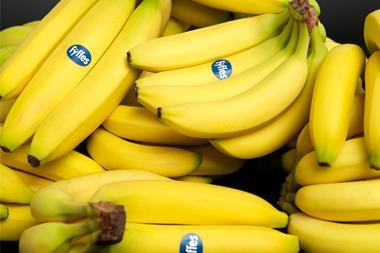
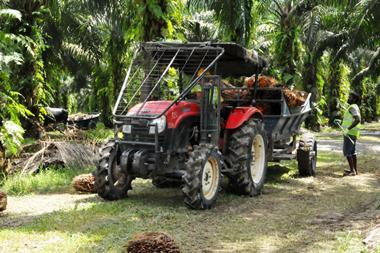

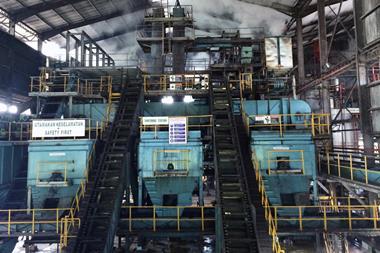
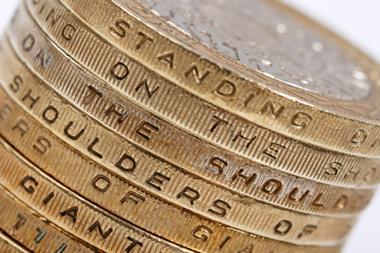
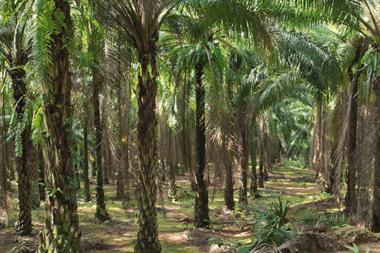






No comments yet